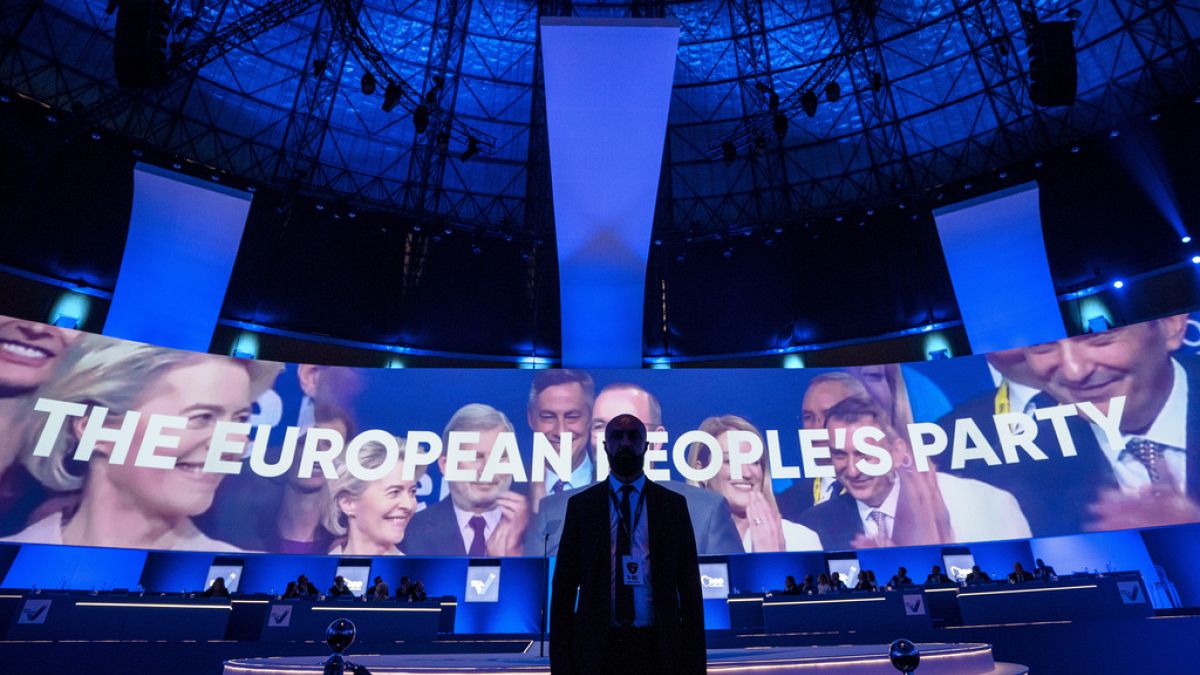Health
Hundreds Were Mistakenly Told They Might Have Cancer, Test Company Says

A company that developed a blood test that detects dozens of types of cancer has acknowledged that about 400 of its customers were mistakenly told last month that they might have the disease.
The company, Grail, said in an emailed statement on Sunday that a vendor it works with had sent hundreds of letters with incorrect test results because of a “software configuration issue” that has since been resolved.
The letters went to customers who had recently purchased Grail’s Galleri test, which uses a blood draw to detect a cancer signal shared by 50 types of cancer and is available only by prescription.
The problem was not caused by inaccurate test results, Grail said. More than half of the people who received the letter in error had not yet had their blood drawn for the test, the company said.
The vendor, PWNHealth, notified Grail on May 19 that an “inaccurate form letter” had been sent to roughly 400 customers from May 10 to May 18, Grail said in its statement. The inaccurate messages were reported by The Financial Times.
After Grail was notified about the problem, it contacted the affected customers by phone and email, the company said. “No patient health information has been disclosed or breached due to this issue, and no patient harm or adverse events have been reported,” it said.
PWNHealth said in an emailed statement that, after it learned about the problem, it found that a system used to send template messages to people had a “misconfiguration.” The company did not specify how it learned about the issue.
“We addressed the underlying problem within an hour of becoming aware of it and have implemented additional processes to ensure it does not happen again,” the company said. “In partnership with Grail, we started contacting impacted individuals within 36 hours.”
The test result letters were erroneously sent out amid a regulatory battle between the United States and Grail’s parent company, Illumina, the leading maker of gene-sequencing machines. Illumina acquired Grail in August 2021.
In April, the Federal Trade Commission ordered Illumina to divest itself of Grail because the acquisition could “stifle competition and innovation” in cancer testing, raising prices and shrinking choices for consumers.
Illumina said it would appeal the F.T.C. ruling and a similar regulatory challenge by the European Union. The company said in April that winning both appeals would allow it to make the Galleri test more widely available, as well as more affordable and profitable.
If its appeals fail, Illumina will “move expeditiously to divest” itself of Grail, the company said.

Health
Semaglutide Pills and Injections Vs. Drops: Experts Weigh In | Woman's World

Sign Up
Create a free account to access exclusive content, play games, solve puzzles, test your pop-culture knowledge and receive special offers.
Already have an account? Login
Use left and right arrow keys to navigate between menu items.
Use escape to exit the menu.
Health
Jennifer Hudson Lost 80-Lbs Without Depriving Herself—Learn Her Secrets

Sign Up
Create a free account to access exclusive content, play games, solve puzzles, test your pop-culture knowledge and receive special offers.
Already have an account? Login
Use left and right arrow keys to navigate between menu items.
Use escape to exit the menu.
Health
Kennedy’s Plan for the Drug Crisis: A Network of ‘Healing Farms’

Though Mr. Kennedy’s embrace of recovery farms may be novel, the concept stretches back almost a century. In 1935, the government opened the United States Narcotic Farm in Lexington, Ky., to research and treat addiction. Over the years, residents included Chet Baker and William S. Burroughs (who portrayed the institution in his novel, “Junkie: Confessions of an Unredeemed Drug Addict”). The program had high relapse rates and was tainted by drug experiments on human subjects. By 1975, as local treatment centers began to proliferate around the country, the program closed.
In America, therapeutic communities for addiction treatment became popular in the 1960s and ’70s. Some, like Synanon, became notorious for cultlike, abusive environments. There are now perhaps 3,000 worldwide, researchers estimate, including one that Mr. Kennedy has also praised — San Patrignano, an Italian program whose centerpiece is a highly regarded bakery, staffed by residents.
“If we do go down the road of large government-funded therapeutic communities, I’d want to see some oversight to ensure they live up to modern standards,” said Dr. Sabet, who is now president of the Foundation for Drug Policy Solutions. “We should get rid of the false dichotomy, too, between these approaches and medications, since we know they can work together for some people.”
Should Mr. Kennedy be confirmed, his authority to establish healing farms would be uncertain. Building federal treatment farms in “depressed rural areas,” as he said in his documentary, presumably on public land, would hit political and legal roadblocks. Fully legalizing and taxing cannabis to pay for the farms would require congressional action.
In the concluding moments of the documentary, Mr. Kennedy invoked Carl Jung, the Swiss psychiatrist whose views on spirituality influenced Alcoholics Anonymous. Dr. Jung, he said, felt that “people who believed in God got better faster and that their recovery was more durable and enduring than people who didn’t.”
-
/cdn.vox-cdn.com/uploads/chorus_asset/file/25822586/STK169_ZUCKERBERG_MAGA_STKS491_CVIRGINIA_A.jpg)
/cdn.vox-cdn.com/uploads/chorus_asset/file/25822586/STK169_ZUCKERBERG_MAGA_STKS491_CVIRGINIA_A.jpg) Technology1 week ago
Technology1 week agoMeta is highlighting a splintering global approach to online speech
-

 Science1 week ago
Science1 week agoMetro will offer free rides in L.A. through Sunday due to fires
-
/cdn.vox-cdn.com/uploads/chorus_asset/file/23935558/acastro_STK103__01.jpg)
/cdn.vox-cdn.com/uploads/chorus_asset/file/23935558/acastro_STK103__01.jpg) Technology1 week ago
Technology1 week agoAmazon Prime will shut down its clothing try-on program
-

 News1 week ago
News1 week agoMapping the Damage From the Palisades Fire
-
/cdn.vox-cdn.com/uploads/chorus_asset/file/25826211/lorealcellbioprint.jpg)
/cdn.vox-cdn.com/uploads/chorus_asset/file/25826211/lorealcellbioprint.jpg) Technology7 days ago
Technology7 days agoL’Oréal’s new skincare gadget told me I should try retinol
-
/cdn.vox-cdn.com/uploads/chorus_asset/file/25832751/2192581677.jpg)
/cdn.vox-cdn.com/uploads/chorus_asset/file/25832751/2192581677.jpg) Technology4 days ago
Technology4 days agoSuper Bowl LIX will stream for free on Tubi
-

 Business5 days ago
Business5 days agoWhy TikTok Users Are Downloading ‘Red Note,’ the Chinese App
-
/cdn.vox-cdn.com/uploads/chorus_asset/file/25835602/Switch_DonkeyKongCountryReturnsHD_scrn_19.png)
/cdn.vox-cdn.com/uploads/chorus_asset/file/25835602/Switch_DonkeyKongCountryReturnsHD_scrn_19.png) Technology2 days ago
Technology2 days agoNintendo omits original Donkey Kong Country Returns team from the remaster’s credits













